No corporate bongos! Outbreak of capitalism has Occupy Movement policing its own
NEW YORK — When 26-year old UCLA grad Alonzo Backman first pitched tent in Zuccotti Park, he hoped his message of income inequity and unsavory dealings on Wall Street would resonate from the 99%, directly to the top 1% of earners.
He never thought he’d be a snitch.
Former Penn State dropout Mary Eileen Wills had driven from northern Indiana to be involved in a movement rooted in anti-consumerism. Finding herself in desperate need of first aid and emergency contraception less than 12 hours after being violently raped inside her tent, she needed somewhere to turn.
Zach Worrell shares a similar story — Occupy Wall Street, the early days — setting up camp, taking his socio-economic argument to the streets of Lower Manhattan and hoping to become part of something authentic.
“We were taking a risk, we all were — helping each other, people in need like Mary Eileen,” said Worrell, in a candid interview conducted three days prior to his federal indictment. “Our efforts would be rewarded with changes in how society operates tomorrow and beyond — a true mechanism of change, forcing the pendulum to swing in our direction for once.”
Bonded by ideas, united against a capitalistic environment they felt had long since forgotten the people on Main Street, Backman quickly found himself working alongside Worrell to organize the needs of their new community.
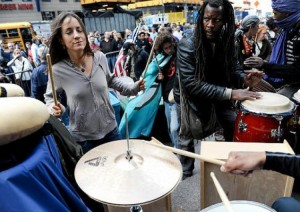 On Thursday, a federal judge granted a motion by prosecutors against Worrell, 31, dismissing two charges of securities fraud and one charge of lying to auditors. Worrell is currently awaiting sentencing on 26 counts of conspiracy, tax evasion, obstruction of justice and bank fraud plus lying to federal investors, employees and regulators in order to disguise the financial enormity of his global empire.
On Thursday, a federal judge granted a motion by prosecutors against Worrell, 31, dismissing two charges of securities fraud and one charge of lying to auditors. Worrell is currently awaiting sentencing on 26 counts of conspiracy, tax evasion, obstruction of justice and bank fraud plus lying to federal investors, employees and regulators in order to disguise the financial enormity of his global empire.
Attorneys for Worrell contend the decision by the judge points to the innocence of their client — real name Mark David Gottlieb — saying, “the only thing Mr. Worrell is guilty of is making a lot of phone calls, going over his minutes plan.”
While his legal team maintains the insistence there was “never in operation a business of any kind, at any time, while in Zuccotti Park,” Worrell faces the prospect of life in prison but is currently free on a $5 million bond.
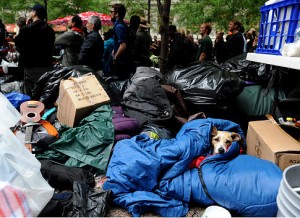 It began September 2011, Worrell recalls, “we looked around, nobody had enough anything — toiletries, food, condoms, tamborines, rain gear was key, outdoor accessories, comfortable shoes, Guy Fawkes masks, balloons that hold urine without breaking when you throw them at police. You can’t possibly plan for the duration,” he said. “Alonzo said we should do something and I started making calls,” inadvertently creating Zaxstor Corp., in less than 60 days becoming the world’s 27th largest global supply chain and third-party logistics provider with an estimated value of $685 million.
It began September 2011, Worrell recalls, “we looked around, nobody had enough anything — toiletries, food, condoms, tamborines, rain gear was key, outdoor accessories, comfortable shoes, Guy Fawkes masks, balloons that hold urine without breaking when you throw them at police. You can’t possibly plan for the duration,” he said. “Alonzo said we should do something and I started making calls,” inadvertently creating Zaxstor Corp., in less than 60 days becoming the world’s 27th largest global supply chain and third-party logistics provider with an estimated value of $685 million.
“I’ve got a buddy in Santa Monica who’s dad owns a freight company and he knows a wholesaler and that guy knows a guy who’s good with numbers and did all the books. I have no idea how the stock market works, that’s for greedy corporate tools who gave us the worst economy since Hoover. There was never an intention to profit and there never was a profit,” he insisted.
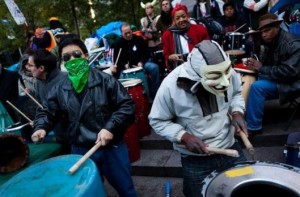 Graduating from the University of California, Riverside with a Bachelor’s Degree in Latin American Film Studies and a minor in Library Science, Worrell was quick to sense the chaos that would later taint the entire Occupy Movement and threaten it’s appeal to voters.
Graduating from the University of California, Riverside with a Bachelor’s Degree in Latin American Film Studies and a minor in Library Science, Worrell was quick to sense the chaos that would later taint the entire Occupy Movement and threaten it’s appeal to voters.“Stuff like toilet paper and blankets were donated, but what if you need 250 bucket drums by tomorrow morning rush hour, else you don’t have a drum circle large enough to block a subway entrance? And those buckets are multi-purpose,” he said. “You see a dude sitting on a plastic bucket with pants around his ankles reading a newspaper on the sidewalk at 10 am, that’s the picture of what the movement is all about. Those buckets needed to come from somewhere.”
Starting with a $3,000 investment, buckets became bongos and bongos became whatever the Occupy community required at every encampment across the nation. “We threw in the drumsticks for free. On the sticks was our website, a picture of Che Guevara and a code you could scan with your smartphone to get 15% off your next order. The sticks glowed in the dark, that’s a lot of hours to have your contact info recognized in a dark tent — an untapped market.”
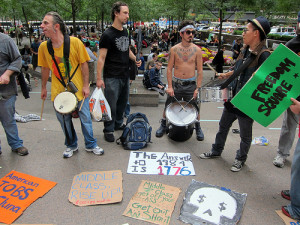 Proving extremely popular were rape kits, which included a whistle and a note to not report the crime to authorities. Tuberculosis outbreak in Atlanta, ringworm in Santa Cruz, riot gear in Oakland, posh rooms at the W Hotel for when you need to get away, the latest Tom Morello CD — Zaxstor was there with necessary supplies, next day and often same day delivery.
Proving extremely popular were rape kits, which included a whistle and a note to not report the crime to authorities. Tuberculosis outbreak in Atlanta, ringworm in Santa Cruz, riot gear in Oakland, posh rooms at the W Hotel for when you need to get away, the latest Tom Morello CD — Zaxstor was there with necessary supplies, next day and often same day delivery.
“It was pretty easy to build a network, Zach did it all on his cellphone — routing deliveries, confirming wholesale purchases, transferring funds — Zach was always on his phone. We shared a tent for seven weeks and that Blackberry was in his left hand the entire time,” Backman recalled.
“Zach was careful to say it was never a business,” Backman made clear. “No money was exchanged, no actual cash moved in and out of anyone’s hands. No credit cards or banks were used because f*ck the banks — everybody had an account if they couldn’t pay what they owed, no big deal. They pay some this month and maybe more next month. You charge a little something to cover expenses and, voilà. Who needs the banks?
“We kept reinvesting, sharing the wealth, hiring more people, providing opportunity and expanding our reach to suit the needs of everyone,” Backman said. “We made connections, helped as many as we could, saved everyone time and money without ripping them off, like corporate America. It doesn’t make sense to treat people like a business does. Zach’s the one who got all corporate with it.”
It was around this time that Backman was approached by federal authorities who offered leniency in exchange for information implicating Worrell. Investigators soon learned the intricate workings of a complex operation with global expanse. Most have found it surprising that within the ranks of this horde of anti-capitalists, the company’s financial arms extended to a point where many in the upper levels of management were enriching themselves by selling millions of dollars in stock.
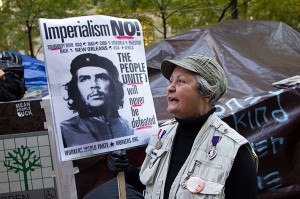 In hindsight, Backman said he should have known. “I remember Zach telling me early on, ‘decisions are made in a blink of an eye, the landscape changes in an instant and your life moves faster than ever.’ I thought that made a lot of sense in terms of what we were doing but later learned it’s a line from a Wall Street Journal commercial. What a phony — total Jew propaganda.
In hindsight, Backman said he should have known. “I remember Zach telling me early on, ‘decisions are made in a blink of an eye, the landscape changes in an instant and your life moves faster than ever.’ I thought that made a lot of sense in terms of what we were doing but later learned it’s a line from a Wall Street Journal commercial. What a phony — total Jew propaganda.
For his part, Backman still faces the possibility of life in prison. He was convicted on six counts of fraud and conspiracy and one count of insider trading, but acquitted on 12 other counts of money laundering. Each count carries a maximum sentence of 5 to 10 years. Also awaiting sentencing, Backman is currently back at home living in Benedict Canyon with his mom.
Shares of Zaxstor (NASDAQ: ZAX) traded lower on the Thursday’s news, closing -7.04% to $22.06.
>> Follow: @SoapyJohnson on Twitter.
>> Comment: Place it on Lucky Dan on Facebook.
© 2012 – 2021, Soapy Johnson. All rights reserved.



